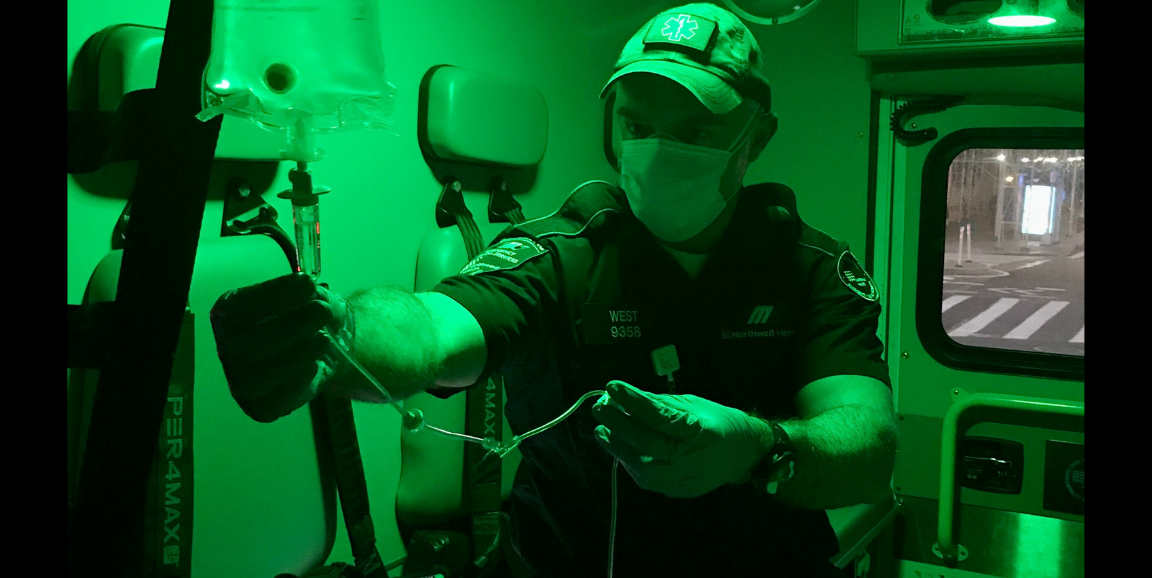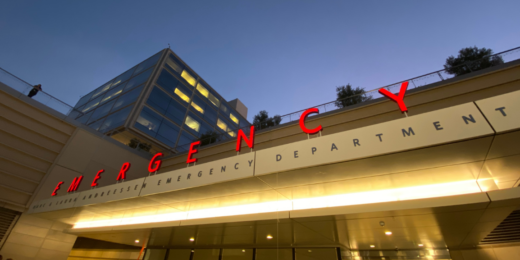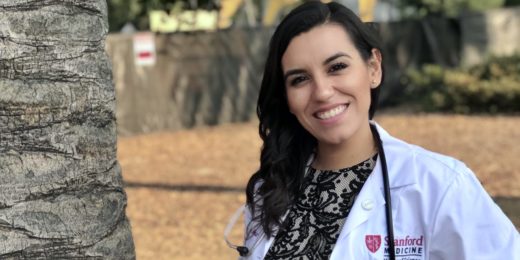Zach West was a New York City paramedic during COVID-19's first wave. Now a student in Stanford Medicine's Physician Assistant program, he looks back on that time and ahead to his future in medicine.
When the coronavirus pandemic arrived in New York City last spring, Zach West felt grateful to be a 911 paramedic in Manhattan.
There was never a doubt in his mind that he was exactly where he wanted to be, even on the days when the calls came back-to-back for 16 hours straight. Even in the weeks when he couldn't get through a shift without pronouncing a death. Even the moments when he walked into the apartments of entire families infected with COVID-19, and he could feel the virus in the air, sure he would contract it himself.
"There were so many people who needed help, and for many of them we couldn't really do much, but for those we could, I wanted to be there," said West, who is now a student in Stanford Medicine's Master of Science in Physician Assistant Studies program.
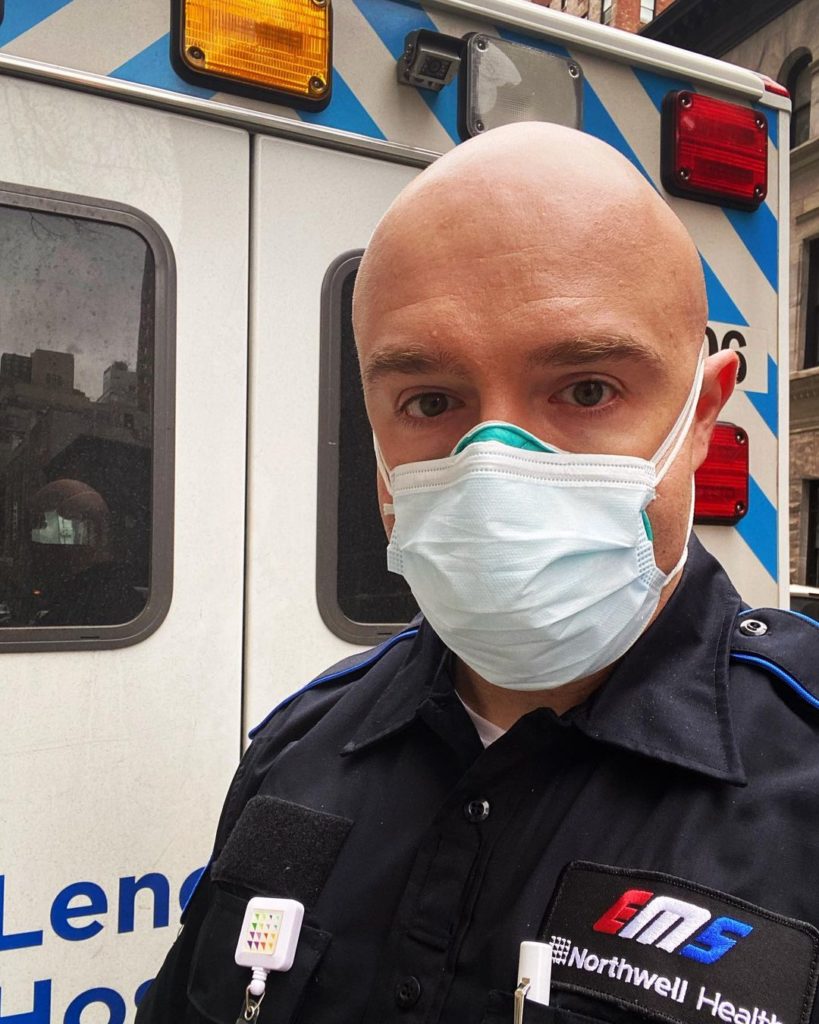
West worked as a paramedic for Lenox Hill Hospital from January 2020 until he left for Stanford in August, with a brief return to the job over New Year's. His time on the job spanned days in March 2020 when the volume of 911 calls surpassed the number received during the Sept. 11, 2001, terrorist attacks.
"I felt like I was doing important work. Even though it was challenging and very stressful, every day when I went into work, I knew that what I was doing mattered -- and that there might be someone in the city that day who needed me to show up at their door and help them. That really kept me going."
From the Special Forces to medicine
West's path to medicine began in the United States Army Special Forces, where he received his EMT and paramedic certifications. A book about the Special Forces -- known as the "Green Berets" for their distinctive headgear -- inspired him to enlist.
Special Forces medics are among the most highly skilled pre-hospital providers in the world, completing training in clinical medicine, lab work, surgery, anesthesia, and even basic veterinary medicine and dentistry. West's hospital rotations included long shifts on 911 ambulances and in emergency departments of Level 1 trauma centers in the U.S, where he practiced intravenous line insertions, intubations, wound care, assisting births, and even surgeries like fasciotomies, which are limb-saving procedures. During active duty, he honed his emergency medicine skills in a field hospital in Iraq, treating U.S. and foreign casualties.
"I learned that I really enjoy emergency medicine, not only the adrenaline and fast-paced lifesaving interventions, but also the variety of encounters," West said. "You never know who your next patient is going to be. It could be a gunshot victim or a diabetic emergency or a stroke. The person could be kind, or combative, or under the influence of something. You have to be skilled at talking to people and reading the situation and getting a detailed history to figure out what's going on and what you can do for the patient. I like that challenge."
What is a physician assistant?
During his hospital rotations as a Special Forces medic, working alongside physician assistants, West learned about a job that he never knew existed -- and which would give him a new career path.
Physician assistants practice under the direction and supervision of a licensed physician, and have a wide scope. They're licensed to diagnose and treat illness and prescribe medication for patients, and, as generalists, can move between specialties throughout their careers.
"I really was taken with how skilled they were and how passionate they were about their jobs," West said. "Every PA I talked to absolutely loved being a PA."
Following active duty, West worked as a civilian paramedic and took courses to satisfy the prerequisites for PA school. While he considered many top PA programs, Stanford Medicine stood out.
"The other programs I looked at focused on how they're going to train you to pass the exam and become a certified PA," West said. "Stanford took that for granted -- of course you'll take the PA exam and be a PA. We want you to be a leader in the profession."
Then, COVID
A few months after West was accepted to Stanford, COVID-19 hit.
It was a surreal time to be a paramedic in New York. In a time when everyone felt at-risk, reassuring frightened people was a big part of his job.
"One of the things I really learned during that period was the psychology of compassion. This was a very scary disease and not a lot was known about it," he said. "It became really important to be a calming presence and try to, amidst all the insanity, provide that reassurance that people needed."
West spent a lot of his time persuading patients with stable vital signs to not go to the hospital, where, besides being exposed to COVID-19 if they didn't already have it, they would likely wait for hours to see a doctor only to be told to go home and rest.
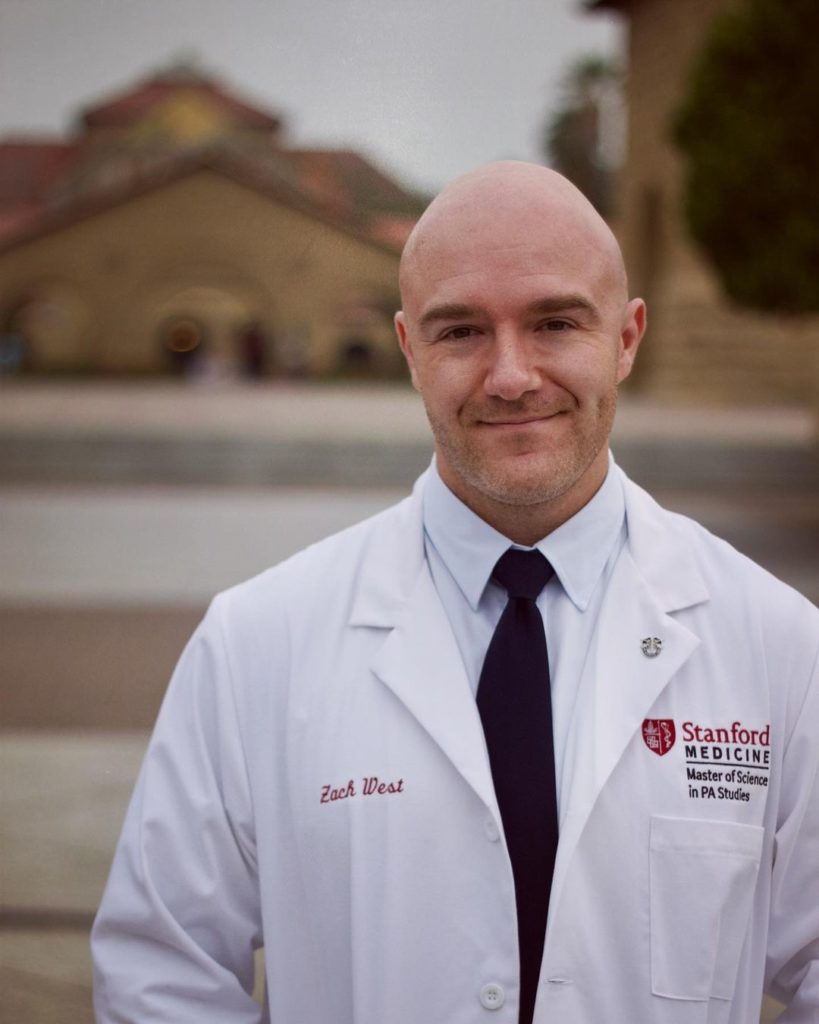
"Hospitals were so overflowing that when you did have to take a patient in, often there would be beds lining the hallways. You only wanted to bring the sickest people," he said. "I always told patients, 'You can always call us back if you start to feel worse.'"
Through weeks of exhausting, stressful shifts, the camaraderie of West's fellow EMS workers and the outpouring of gratitude from strangers kept him going.
A couple of times in April, strangers walked up to his ambulance and handed him and his partner gift cards for food or coffee. And he looked forward to the nightly ritual of New Yorkers cheering, clapping, and clanging pots and pans for the city's health care workers.
One day, he was even greeted by a mariachi band (volume on).
"It meant a lot that people would go out of their way to thank us and to celebrate us and recognize the effort we were putting in, and the danger we were putting ourselves in," West said. "It was really special that people were that grateful."
West kept a journal during that time of some of his experiences and observations, which he may revisit in an elective creative writing course he is taking this spring.
Vaccines and silver linings
Due to COVID-19, most of West's classes so far have taken place virtually, aside from in-person cadaver labs for anatomy and a course that occasionally met outdoors.
West received his first vaccination shot a few weeks ago and is hoping there will be more chances to get to know the faculty in the near future.
"Graduate school may not look like what I expected, but at the end of the day, I'm still here and getting the education I came for," West said. "If there's a silver lining, my PA cohort has become really close ... and I think many of us will be lifelong friends."
The Voices of COVID series captures the stories of the many people at Stanford Medicine who have been stepping up to the challenge of the pandemic. Follow along on social media and look for new stories regularly. If you have ideas to share, reach out to Becky Bach at retrout@stanford.edu.
Photos courtesy of Zach West


